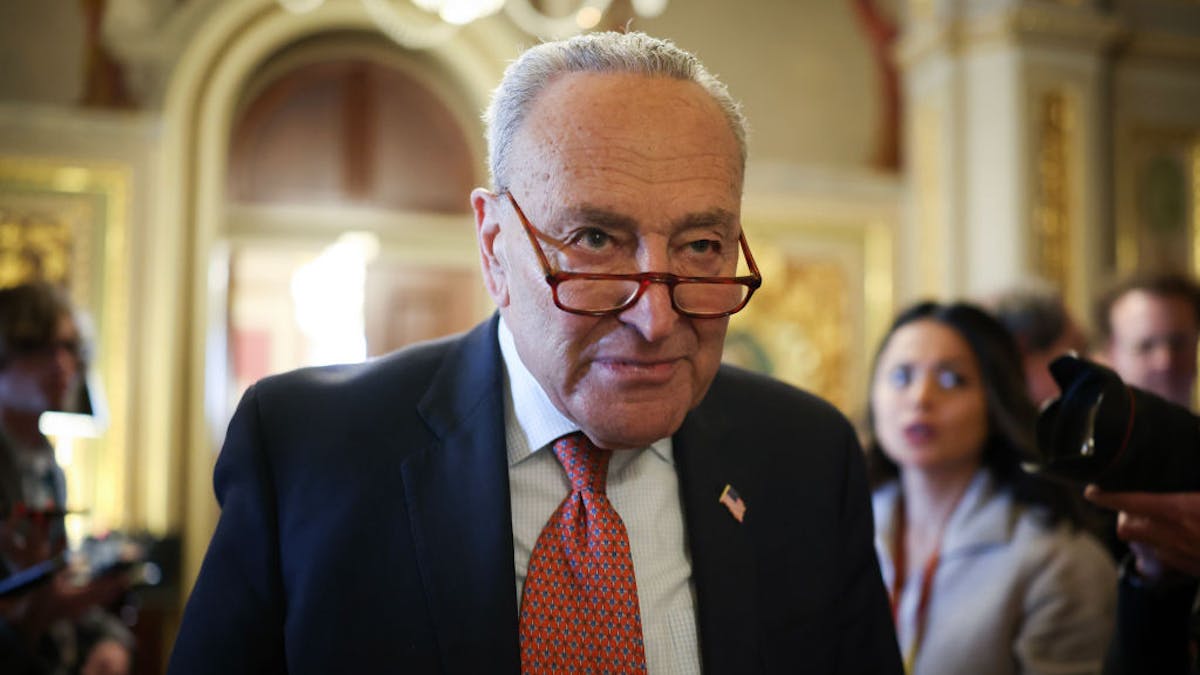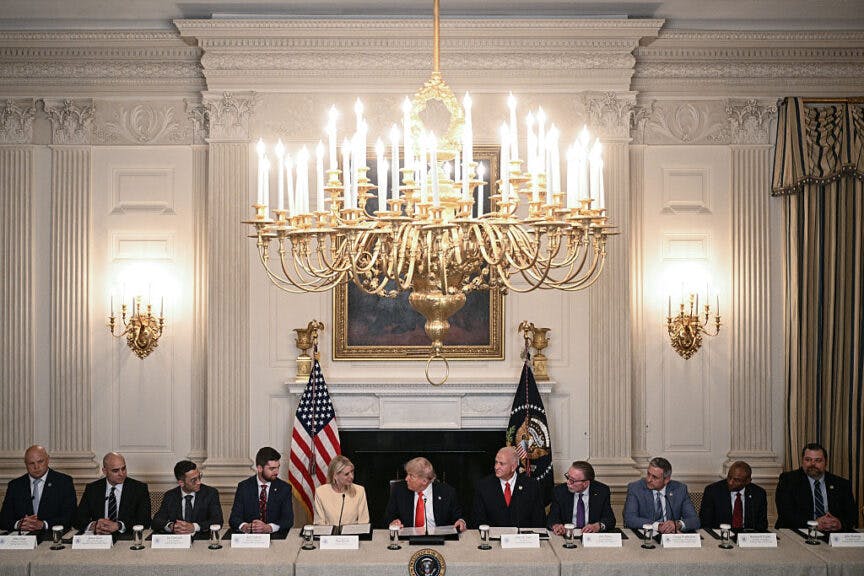


WASHINGTON — Top law enforcement organizations are warning that a government shutdown would put the lives — and livelihoods — of many American law enforcement officers in danger.
The National Association of Police Organizations (NAPO), which represents 250,000 state and local law enforcement officers throughout the United States, warned in a statement Saturday that “if lawmakers neglect their constitutional duties, allow funding to run out and shut down the government, federal law enforcement officers, who are working to protect our cities and communities from violent crime, drugs, and guns, will be putting their lives on the line without getting paid.”
“Federal funding for task forces will stop flowing,” the organization warned. “Federal grants, resources, and supports for state and local law enforcement will stop, leaving vital public safety initiatives in the lurch.”
NAPO pointed to the tragic shooting at a Dallas Immigration and Customs Enforcement facility earlier this week, arguing: “Now is not the time to let federal funding run out. As the deadly shooting at the Dallas Immigration and Customs Enforcement (ICE) facility [on Wednesday] illustrates, American law enforcement officers are working in an increasingly dangerous and charged environment.”
Get 40% off new DailyWire+ annual memberships with code FALL40 at checkout
“To have them risk their lives without pay undermines support for the work they are doing and increases the stresses and strains the job puts on them and their families,” the organization insisted. “We are calling on all lawmakers to do the right thing and enact a continuing resolution to fund the government before time runs out.”
Their calls to action come after the White House Office of Management and Budget issued a memo late Thursday to federal agencies, ordering these agencies to prepare for reduction-in-force if there is a government shutdown — specifically pinpointing unfunded programs that fall outside President Donald Trump’s priorities — and draft termination plans.
The National Fraternal Order of Police, which represents 382,000 members throughout the United States, similarly urged Congress to fulfill one of its “most fundamental responsibilities” — “providing funding for the operations of our Federal government.”

US President Donald Trump (C), flanked by Attorney General Pam Bondi (L) and Fraternal Order of Police National President Patrick Yoes (R), speaks during a roundtable discussion with the Fraternal Order of Police in the State Dining Room of the White House in Washington, DC, on June 5, 2025. (Photo by BRENDAN SMIALOWSKI/AFP via Getty Images)
“They have got to pay the bills,” said the organization’s president, Patrick Yoes. “Political divisions and Congressional dysfunction seem to be a growing problem no matter which party controls Congress and the White House.”
Yoes pointed to the continuing resolution, which passed the House earlier this month, but requires 60 votes to pass the Senate. It failed to pass the Senate in a 44-48 vote, which eight of the senators missed.
“The bill is a ‘clean’ continuing resolution that will prevent the partial government shutdown that is swiftly approaching,” Yoes argued. “The Senate’s rejection will cause major disruptions for programs that fund public safety efforts in our communities. Government officials throughout the U.S. Departments of Justice and Homeland Security won’t be able to man their posts and provide support for operations in the field. This should be unacceptable to all Americans.”
Similarly, the Council of Local Prisons argued that a government shutdown would “not only threaten” the livelihoods of the men and women who serve in the Federal Bureau of Prisons (BOP) — it would also “directly jeopardize institutional security and public safety nationwide.” The individuals who work in the BOP perform incredibly “difficult, dangerous, and essential work in government service,” the organization warned.
BOP can’t reduce its hours, close its doors, or pause its operations during a shutdown, the organization said in a statement. And given that federal correctional officers are already facing a staffing crisis, a shutdown would cause officers to work without pay, put major strain on the spouses and children of correctional staff, and signal “instability” in the profession, making recruitment harder and driving “experienced officers to seek employment elsewhere.”
“Correctional facilities must remain fully operational around the clock,” the Council of Local Prisons explained. “Inmates must be housed, fed, transported, and supervised regardless of political gridlock. The mission of the BOP is continuous, and its staff are required by law and duty to report to work—even if pay is withheld.”
“This reality means that during a shutdown, thousands of correctional officers and staff are compelled to put their lives on the line each day without the certainty of a paycheck. For many, this creates immediate financial hardship, while for all, it adds unnecessary stress to a job already defined by danger and high stakes.”
Understaffed prisons will see more violence, the organization warned, noting: “Failures within institutions spill over into the public—whether through contraband trafficking, gang coordination, or threats against law enforcement and citizens.”
“This issue transcends partisanship,” the Council of Local Prisons insisted. “Members from both sides of the aisle have consistently recognized the critical role of the Bureau of Prisons in safeguarding the public. Ensuring these officers are supported is not a Democratic or Republican issue—it is an American issue. Public safety cannot be compromised for political brinkmanship.”
“Every day a shutdown continues, correctional staff are asked to risk their lives without pay, institutions operate under mounting strain, and the American people are put at greater risk. The cost of inaction far outweighs any perceived political gain.”
